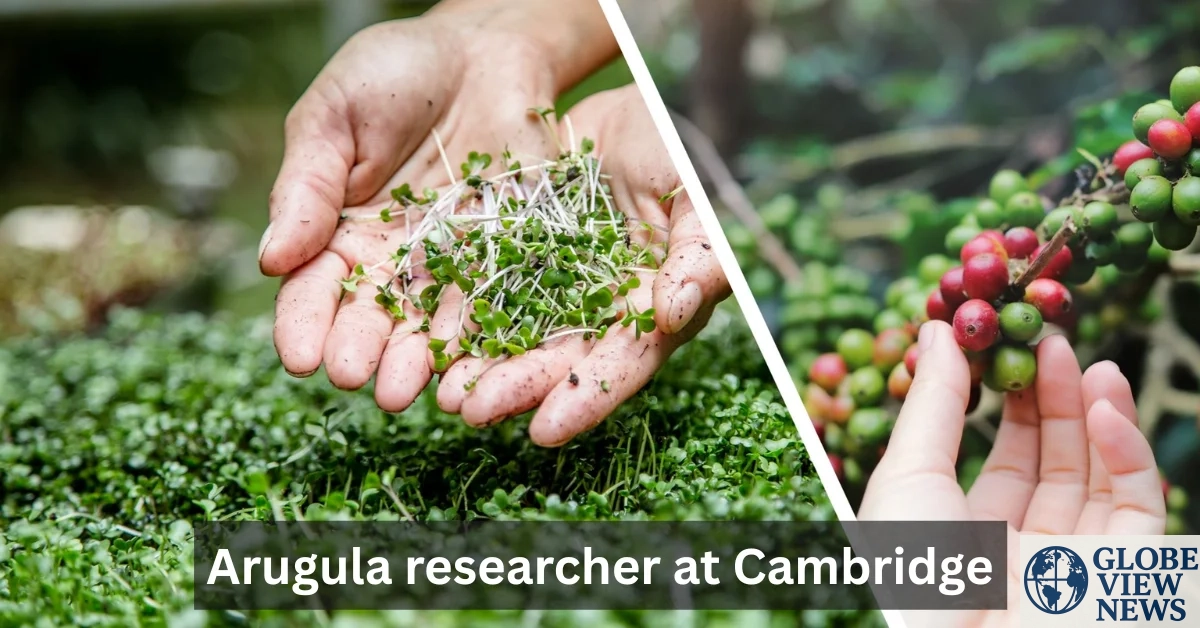In the verdant fields of English academia, an Arugula Researcher At Cambridge embarks on a quest to uncover the hidden potential of this peppery green. Having chosen to focus on one of the most enigmatic leafy vegetables, they navigate through centuries of botanical knowledge to redefine our understanding of arugula. Their journey begins in the historic laboratories of the Botanic Garden, where classical study of plant morphology meets modern genomic analysis.
As scholars and scientists converge, the role of the Arugula Researcher At Cambridge has evolved from mere classification to deep exploration of nutritional, genetic, and environmental aspects. This unique position blends traditional botanical techniques with cutting-edge molecular tools, ensuring that each discovery resonates beyond the sterile walls of laboratory benches. For many observers, the very title of Arugula Researcher At Cambridge symbolizes dedication to a humble yet significant leafy crop that has fed civilizations for centuries. Through this dedicated pursuit, Cambridge has become a nexus for arugula science.
The path to becoming an Arugula Researcher is marked by rigorous training. Doctoral candidates immerse themselves in coursework that spans phylogenetics, soil science, and plant biochemistry. Fieldwork in surrounding counties often complements classroom instruction, as researchers track wild relatives of arugula and observe ecological interactions firsthand. Seminar series at the university bring together experts in horticulture, nutrition, and agricultural policy, allowing the arugula specialist to view their work through multiple interdisciplinary lenses.
At the heart of Cambridge’s famed botanical gardens, the Arugula Researcher At Cambridge delves into the leafy green’s properties, investigating its resilient growth patterns and rich phytochemical profile. By employing advanced molecular techniques—such as RNA sequencing and CRISPR-mediated gene editing—each experiment led by the Arugula Researcher At Cambridge sheds light on how specific genes contribute to flavor intensity, drought tolerance, and disease resistance. In one notable study, researchers identified a cluster of transcription factors that regulate the production of glucosinolates—the compounds responsible for arugula’s characteristic pungent taste.
Beyond mere flavor, the Arugula Researcher collaborates with agronomists to identify optimal cultivation practices suitable for both small-scale farms and large agro-industrial operations. Their greenhouse trials simulate variable water and nutrient regimes, revealing that arugula genotypes can adapt to marginal soils with minimal fertilizer inputs. These insights have led to pilot projects that test low-input cultivation in regions where irrigation is scarce. Farmers who adopt these recommendations report robust yields even under challenging environmental conditions.
International partnerships also feature prominently in this researcher’s agenda. Collaborations with institutions in Italy, where arugula has been a culinary staple for centuries, supply heirloom seeds and ancestral landraces for comparative analysis. By sequencing the genomes of diverse arugula populations, the Arugula Researcher helps trace migration patterns and selection events that have shaped arugula’s domestication history. Such work not only enriches our historical perspective but also uncovers genetic diversity critical for future breeding programs.
The discoveries made by the Arugula Researcher At Cambridge have implications that extend far beyond the confines of academia. Recognized for its high levels of vitamins A, C, and K, as well as its unique glucosinolate compounds, arugula is under the spotlight for its potential anti-inflammatory and anticancer properties. In a groundbreaking longitudinal study, researchers demonstrated that regular consumption of arugula led to measurable reductions in certain biomarkers associated with oxidative stress. This finding has been widely cited by nutritionists seeking to promote dietary patterns rich in leafy vegetables.
Moreover, the Arugula Researcher has published pivotal studies demonstrating how arugula’s phytochemicals interact at the cellular level, revealing pathways that may reduce chronic disease risk. By collaborating with cell biologists and nutrigenomics experts, they examined the effects of arugula extracts on human colon cells, documenting downregulation of pro-inflammatory cytokines. Such research has become the basis for follow-up clinical trials that explore arugula’s potential role in preventing gastrointestinal disorders.
In parallel, by comparing organic versus conventional farming methods, the Arugula Researcher At Cambridge provides evidence-based recommendations to farmers aiming to maximize nutrient density while minimizing environmental impact. Organic fields cultivated under permaculture principles were found to produce arugula leaves with a 20% increase in total antioxidant capacity compared to conventionally grown counterparts. These results have significantly influenced local and national agricultural policies, encouraging subsidies for organic growers and the development of sustainable farming incentives.
In response to climate change challenges, the Arugula Researcher At Cambridge is pioneering methods to reduce water usage and enhance soil health for arugula production. By applying principles of agroecology, their studies aim to create circular systems where waste is minimized and biodiversity is promoted. One flagship project involves integrating arugula into multi-layered agroforestry plots where legumes fix nitrogen, reducing the need for synthetic fertilizers. The arugula grown beneath partial shade shows improved leaf tenderness and flavor concentration, demonstrating that strategic canopy management can produce premium-quality greens.
Under the guidance of the Arugula Researcher At Cambridge, pilot projects demonstrate the feasibility of integrating arugula into crop rotations that improve soil structure and carbon sequestration. Cover-crop trials reveal that planting arugula between seasons of cereal grains can suppress nematode populations and alleviate soil compaction. This rotation also curtails the lifecycle of common pests, diminishing reliance on pesticides. Farmers participating in these trials report healthier soils and reduced input costs, illustrating the economic viability of sustainable cultivation.
Such sustainable cultivation strategies are vital in ensuring global food security, especially as demand for nutrient-dense vegetables continues to rise. The work of an Arugula Researcher At Cambridge extends from lab bench to field, influencing policies and farming practices. Engagement sessions with local growers and community gardening groups translate research outcomes into actionable guidelines, fostering grassroots support for regenerative agriculture. In doing so, the Cambridge researcher bridges the gap between scientific discovery and real-world implementation, building a legacy of responsible stewardship.
Looking ahead, partnerships between the Arugula Researcher At Cambridge and international institutions aim to explore arugula’s role in crop diversification and climate resilience. Such collaborations facilitate knowledge exchange and technology transfer, ensuring that farmers worldwide can adopt innovative practices. In particular, joint ventures with researchers in North America and Asia focus on developing arugula lines adapted to high-heat and high-humidity regions, addressing the challenges posed by global warming.
Emphasis on open-access data means that findings from arugula trials are readily available to educators, extension services, and community gardeners. By democratizing research outcomes, the project seeks to foster a global network dedicated to enhancing the sustainable production of arugula and related leafy greens. Online platforms host genomic databases, agronomic protocols, and culinary applications that encourage diverse stakeholders to contribute observations and experiment results. These digital corridors of communication amplify the impact of each experiment, turning solitary discoveries into collective advances.
In addition to regional collaborations, the Cambridge researcher is forging partnerships with food scientists to develop value-added products. Freeze-dried arugula powders, for example, retain much of their antioxidant properties and can be incorporated into nutrient-fortified snacks. Researchers are also exploring arugula seed oil as a potential source of omega fatty acids. Such innovations aim to expand consumption beyond salad bowls, embedding arugula into broader food systems that cater to modern lifestyles.
Finally, outreach efforts extend to policy arenas where the Cambridge scholar works alongside government agencies to advocate for urban agriculture initiatives. By demonstrating that arugula can thrive in rooftop gardens and indoor vertical farms, the Arugula Researcher At Cambridge underscores the crop’s versatility. Educational workshops in city centers teach residents how to cultivate arugula on a balcony, while collaborations with NGOs distribute seeds and cultivation manuals to under-resourced communities. These endeavors illustrate a holistic vision: research not as an isolated academic pursuit but as a catalyst for social change and environmental resilience.
The journey of an Arugula Researcher At Cambridge exemplifies how focused botanical inquiry can yield far-reaching benefits. From deciphering the molecular underpinnings of pungent flavors to pioneering climate-smart cultivation techniques, each discovery enriches both science and society. By championing sustainable practices, advancing nutritional insights, and fostering global partnerships, the researcher ensures that arugula remains a dynamic model for agricultural innovation. As interest in this unassuming leafy green continues to flourish, the findings emerging from Cambridge will undoubtedly shape the future of food, health, and ecological stewardship.

